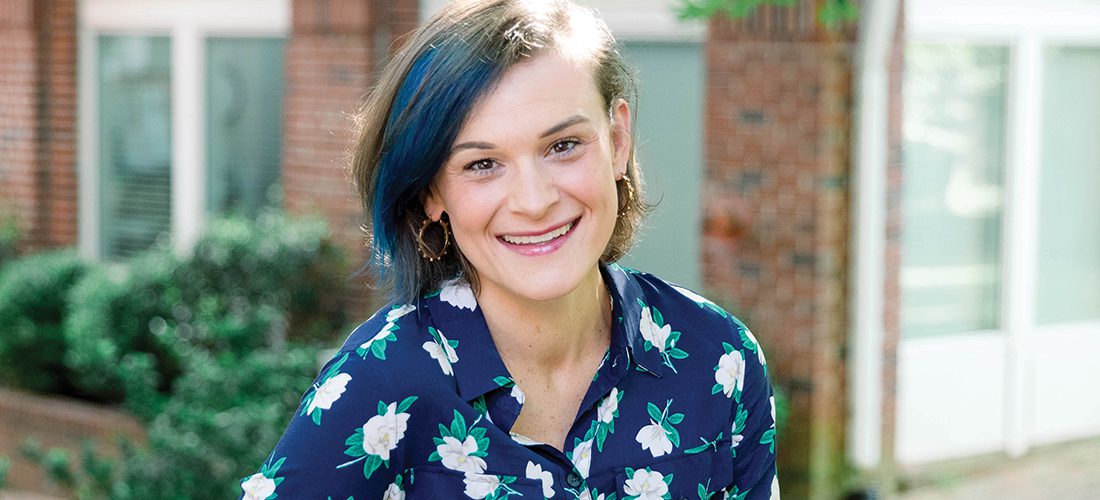Well + wise: Taming the clutter
June 27, 2024

How our physical environment affects our mood
by Juliet Lam Kuehnle
Try this with me: Go into the room where you spend most of your time and look around. What do you see? What is your eye drawn to as you take it all in? Do you notice anything that creates annoyance or stress in your body? Does anything evoke a positive memory, or even a smile? Do any judgmental thoughts come up about the space or yourself?
Our everyday environment and the physical space around us have a significant impact on our mood. The reaction is very individualized — one person may feel very relaxed in a dark, moody and well-lived-in room, while others might feel more at ease in an open, light-filled space. But one thing research confirms is that for most people, living among physical clutter incites more mental chaos and feelings of being out of control.
Seeing clutter literally stimulates the production of stress hormones, various studies have shown. Living or working in a cluttered environment can lead to feelings of overwhelm, stress and anxiety. When surrounded by clutter, it becomes difficult to focus and concentrate, leading to decreased productivity and efficiency. The constant visual stimuli of clutter can overload the brain, making it harder to process information and make decisions.
On a deeper level, clutter can interfere with relaxation and hinder the ability to fully unwind and recharge. A cluttered space can create a sense of unrest, preventing us from finding peace and tranquility in our own homes.
Knowing we can have a physiological response to disorder and messiness, it helps to find a balance. We can find a way to have things that we value and not obsess about cleanliness, and we can ensure that our meaningful objects have a place. We can work to catch any judgment we might have toward our spaces or ourselves.
Sometimes clutter can evoke feelings of guilt and shame. If seeing the dirty dishes in the sink brings up thoughts of inferiority or not having a house like you see in the magazines, perhaps you can meet that thought with a more compassionate one: “I’m doing the best I can and will ask for help when I need it.” You can also start thinking about your kids’ game pieces that are still on the floor as memories, not messes.
Here are some other tips to try in your physical space to enhance your mood:
• Spend a short amount of time each day working toward organization and decluttering.
• Increase the natural light in your room, and consider bringing nature indoors with fresh flowers or plants.
• Tap into your senses and identify what evokes positive feelings for you. If a specific color induces joy, incorporate that color palette with paint or decorative objects. Light candles with scents that are soothing or that elicit positive memories. Pay attention to how the lighting in a room impacts your mood. Sometimes we need a brighter space for more motivation and clarity; other times we may yearn for a dimmer space in order to feel cozy and relaxed.
• Incorporate objects that bring up positive memories and feelings of nostalgia, connection and gratitude.
Juliet spoke with Kenzie Harkey, professional organizer and founder of Simply Dare, a home-organizing company. Below are excerpts from their interview, lightly edited.
How does your mental health journey intersect with what you do?
As someone who has had ADHD since I was young, I’ve always known that if things are disordered, I can’t focus. I also know the impact on my anxiety. Going to therapy and organizing my space have helped my mental health. I still remember the STOP [mindfulness] skill my therapist taught me when I was younger:
S: Stop — Take a brief pause.
T: Take a breath — Take a deliberate breath.
O: Observe — Acknowledge your thoughts, feelings, and the environment without judgment.
P: Proceed mindfully — Proceed with intentionality, choosing a response thoughtfully.
Organizing someone’s home is such an intimate thing. You’re literally looking in their junk drawers.
Absolutely. Some clients are hesitant, and others are super vulnerable. They all recognize, though, that how the energy feels in their space is important.
Do you talk about this as a team — how to create safety with this vulnerability?
Yes, that’s a question that I ask in my interview process: “What would you say to someone who expresses shame or embarrassment?” We have to be comfortable with this. The home is a safe space, and we need to know how to be an emotional support system alongside our organization specialty.
There is so much psychology around how people attach to their things and how physical environments impact mood.
I was a health coach originally but never even asked about people’s environments, which I know now was an oversight. Design and organization is a health thing. It’s more than just creativity and how your space is set up. It impacts how you feel in your body and how you show up in the world. The home is the foundation for everything you want to accomplish. SP
Juliet Kuehnle is the owner and a therapist at Sun Counseling and Wellness and author of Who You Callin’ Crazy?! The Journey From Stigma To Therapy. The full interview of Kuehnle’s interview featuring Kenzie Harkey can be found on Instagram @YepIGoToTherapy or wherever you stream podcasts.
